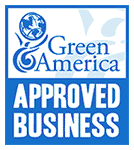Hydrogen sulfide gets new look from EPA
Tuesday, December 11, 2007
NEW YORK — More scientific evidence showing that hydrogen sulfide may have health effects at low levels is prompting the US Environmental Protection Agency (EPA) to consider whether to broadly regulate the substance, a December 11 article in The Wall Street Journal says.
Although the article focuses on the proposed regulation of hydrogen sulfide’s emissions as a gas from industrial, landfill or livestock operations, the substance is also a common natural constituent of groundwater used for drinking. Various oxidation methods typically are used to remove it from water. One complaint from consumers of well water can be hydrogen sulfide’s characteristic “rotten egg” odor.
“The gas was once thought to be harmless in low concentrations,” says the article by Wall Street Journal reporter Ilan Brat. However, the article also notes, “Some scientists and federal health investigators say mounting research in recent years shows that prolonged exposure to relatively low levels may affect memory, coordination, eyes and breathing.”
Researchers say more study of hydrogen sulfide’s health effects is needed, the article said. It adds that high-level EPA officials are now reviewing a 2006 recommendation by EPA staff, based on a scientific literature review, that the agency should consider listing hydrogen sulfide as a hazardous air pollutant.
The US Occupational Safety and Health Administration now sets an upper limit of 20 parts per million of hydrogen sulfide in the air in workplaces, according to the article. EPA does not list hydrogen sulfide as a primary or secondary drinking water contaminant, although hydrogen sulfide is a potential contributor to undesirable conditions of odor or corrosivity (low pH) listed on the secondary drinking water contaminant list.
Industries that emit gaseous hydrogen sulfide are concerned about what they believe would be the high cost of EPA listing it as a hazardous air pollutant. Congress removed it from a list of such pollutants in 1990 amendments to the Clean Air Act, citing a “clerical error” in putting it there originally. Companies that produce more than 10,000 pounds of hydrogen sulfide must have emergency plans for accidental releases, but low-level emissions generally are not regulated, according to The Wall Street Journal.
Health investigators say some deaths, injuries and illnesses have resulted from exposures to hydrogen sulfide, and some states have regulated its emission at lower levels, the article said. While noting that decomposition of many organic materials is a common source of hydrogen sulfide, the story also points to the decomposition of gypsum in wet household wallboard found in construction landfills as another source.
***
I have a whole house system that will remove hydrogen sulfide from your water. You may request those specification here: Sweetwater's Hydrogen Sulfide System
Return to the Resource Library

James P McMahon Ecologist
"What's in YOUR Water?"
To view my experience and credentials:
 ©
©
Sweetwater, LLC
Return to:
* * *
Home Water Purification Systems Air Purification Consultations Buy my Ultimate Guide Resource Library
Water Purifiers Arsenic Iron Removal Commercial Healing Waters Rainwater
Whole House Water Purification Water Testing Healthy Links Biography Well Water Rave Reviews



